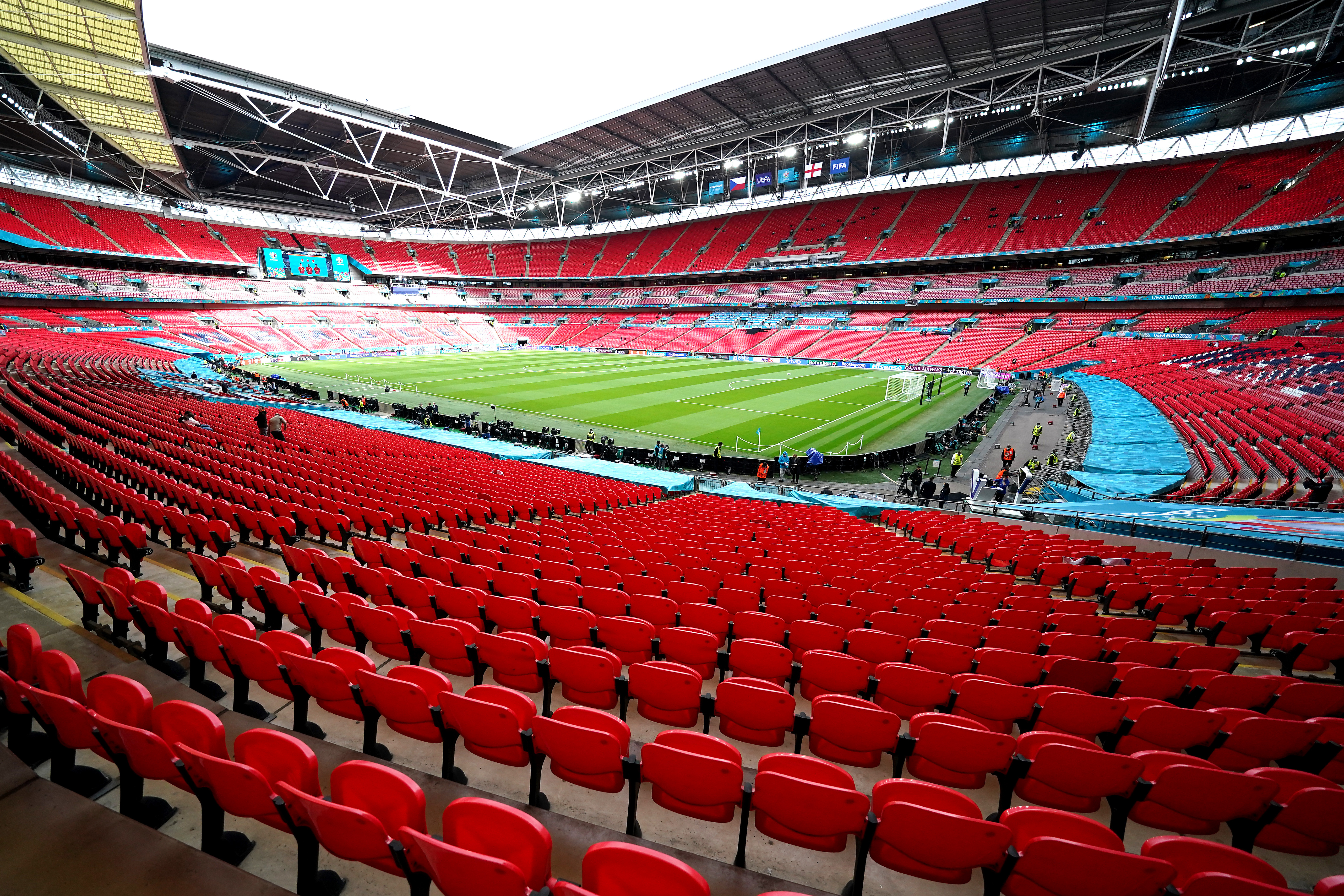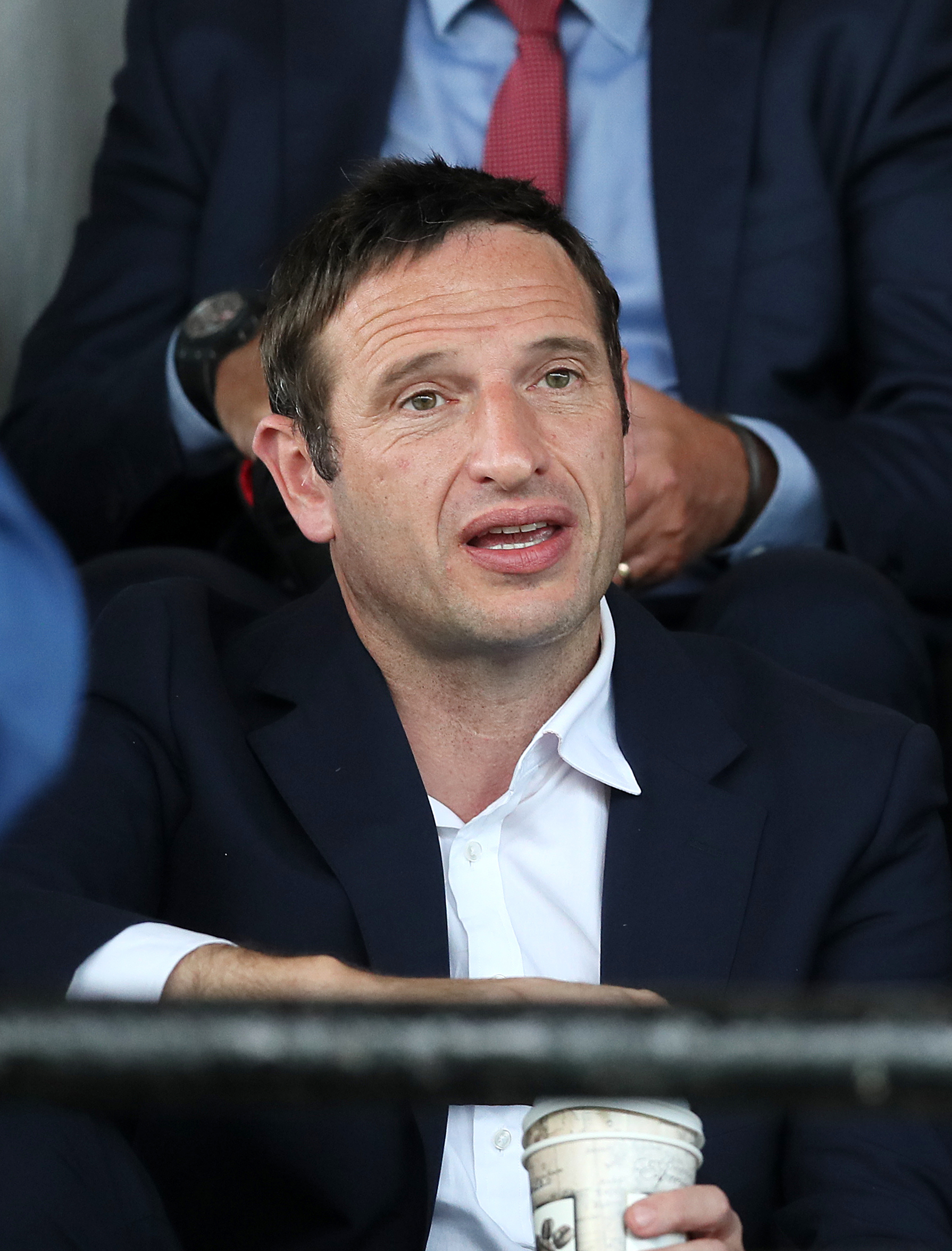UK and Ireland submit initial bid to host Euro 2028 – what happens next?

The UK and Ireland have submitted a formal ‘expression of interest’ in hosting Euro 2028.
Here the PA news agency takes a look at what we know about the bid so far.
How did we get here?
Following an extensive feasibility study, we can confirm we have agreed to focus on a bid to host UEFA EURO 2028 along with the @IrishFA, @ScottishFA, @FAWales and @FAIreland.— The FA (@FA) February 7, 2022
The national associations of England, Northern Ireland, the Republic of Ireland, Scotland and Wales had been involved in a feasibility study looking at a possible bid for the centenary World Cup finals in 2030.
However, they jointly announced on February 7 their intention to go for Euro 2028 instead.
Why did they do that?

Mark Bullingham, the chief executive of the English FA, spoke last month about the greater “uncertainty” surrounding the FIFA process. The bidding regulations for 2030 have not yet been confirmed, while the international calendar beyond 2024 is not yet fixed. The possibility of a switch to biennial World Cups looks increasingly unlikely, but altogether the Euros were deemed the more appealing option.
Get FourFourTwo Newsletter
The best features, fun and footballing quizzes, straight to your inbox every week.
Who else is in the running?

Prior to their invasion of Ukraine, 2018 World Cup hosts Russia had been reported to be interested, while perennial bidders Turkey were also mentioned. However, the Times reported earlier this week that there were no other formal bids lodged with UEFA with 24 hours to the deadline, appearing to give the UK and Ireland bid a clear run at it. Certainly, no other association has publicly stated an intention to bid.
If it is the sole bid, what happens then?
🏆 ICYMI: The bidding process for UEFA EURO 2028 has been confirmed.— UEFA (@UEFA) October 13, 2021
UEFA is due to confirm bidders on April 5 according to the bidding process information it released last October. If the UK and Ireland bid stands alone, the Times report that the five associations would then have until the end of the year to provide the necessary government guarantees to UEFA on issues such as security, visas and tax exemptions.
Where would matches be played?

Wembley would be the obvious favourite to host the final, while any number of Premier League stadia fit the bill. The Principality Stadium in Cardiff, Hampden Park in Glasgow and the Aviva Stadium in Dublin would also be likely to feature, while Northern Ireland is also keen to host matches. A redeveloped Casement Park could be one option, but nothing was ruled in or out by Irish Football Association chief executive Patrick Nelson last month.
In all, the five associations should comfortably be able to fulfil the stadium requirements set by UEFA – a minimum of 10 stadia in total, one holding at least 60,000 one or preferably two of 50,000, at least four with a minimum of 40,000 capacity and at least three holding a minimum of 30,000 people.
Who would qualify?

That is still to be decided. UEFA’s bidding information published last year said automatic qualification cannot be guaranteed for any more than two hosts. Football Association of Wales chief executive Noel Mooney said last week the bidding countries had agreed on a “concept” for determining qualification, but that UEFA would have the final say. It is widely expected that Euro 2028 will be the first continental finals to feature 32 instead of 24 teams.
Is this good news for UEFA?

Very much so. Following on from hosting Euro 2024 in another big market, Germany, a finals staged across the UK and Ireland promises a major revenue boost for UEFA and its member associations as they recover from the financial impact of the Covid-19 pandemic.
There had been concerns that the chaos surrounding the Euro 2020 final had damaged England’s reputation as a major event host, but UEFA continues to demonstrate its faith in Wembley and will bring the ‘Finalissima’ match between Italy and Argentina to the London venue in June, while England are also the hosts for this summer’s Women’s Euro.
